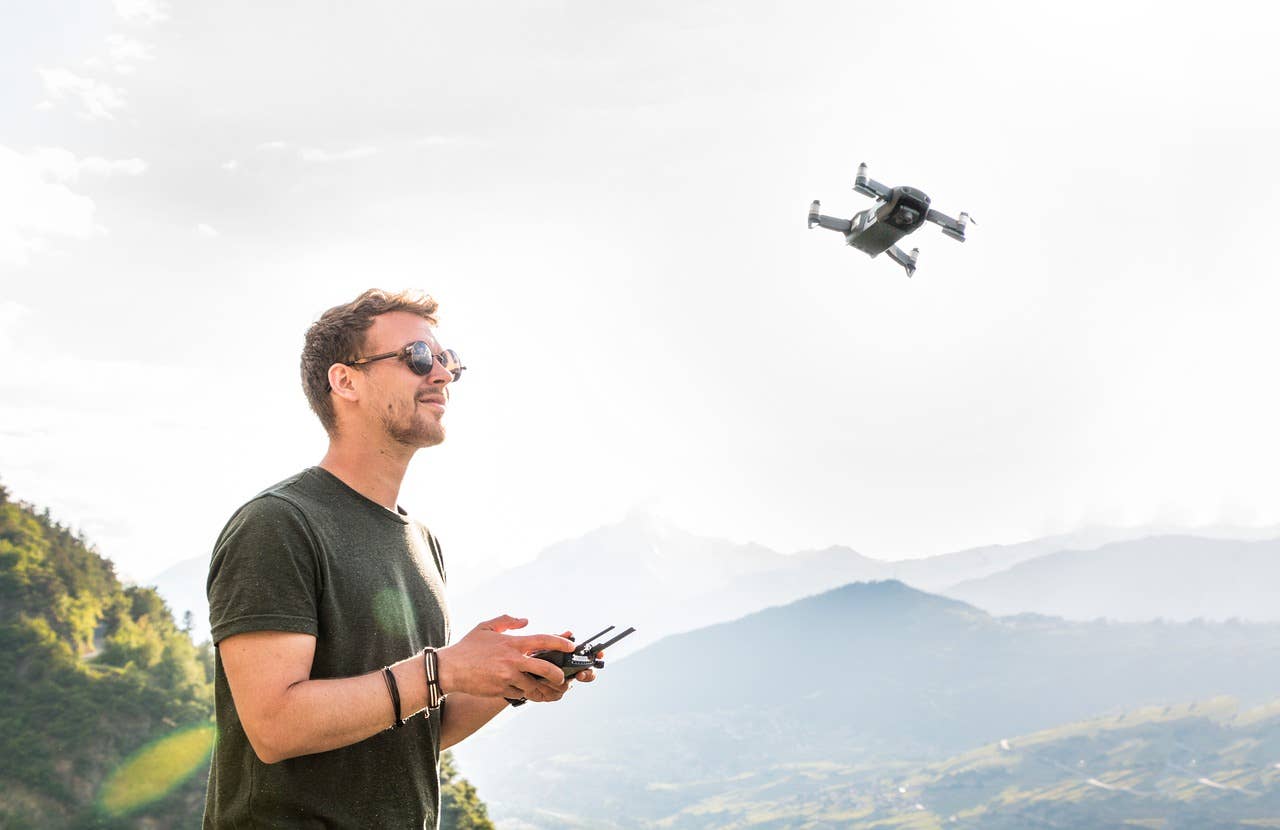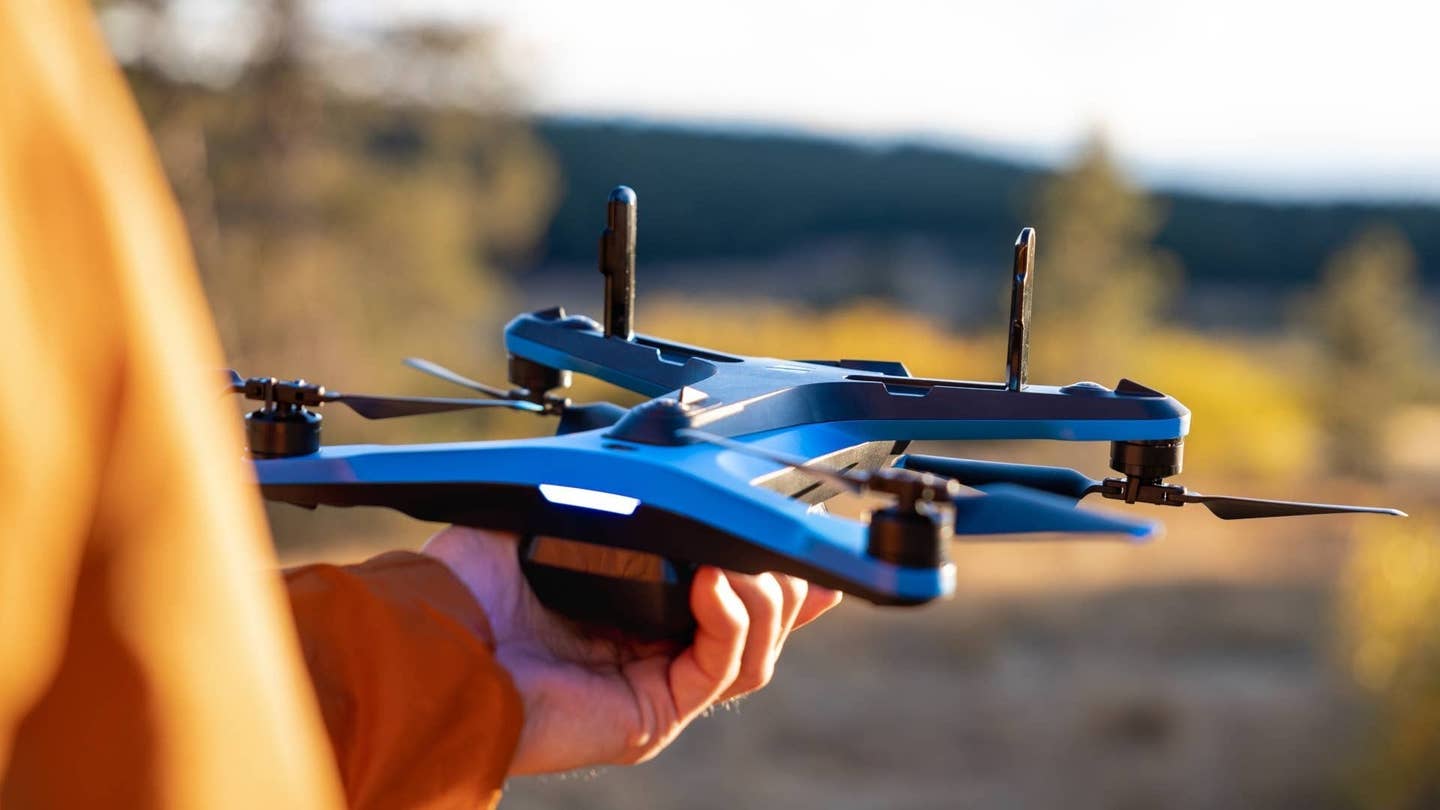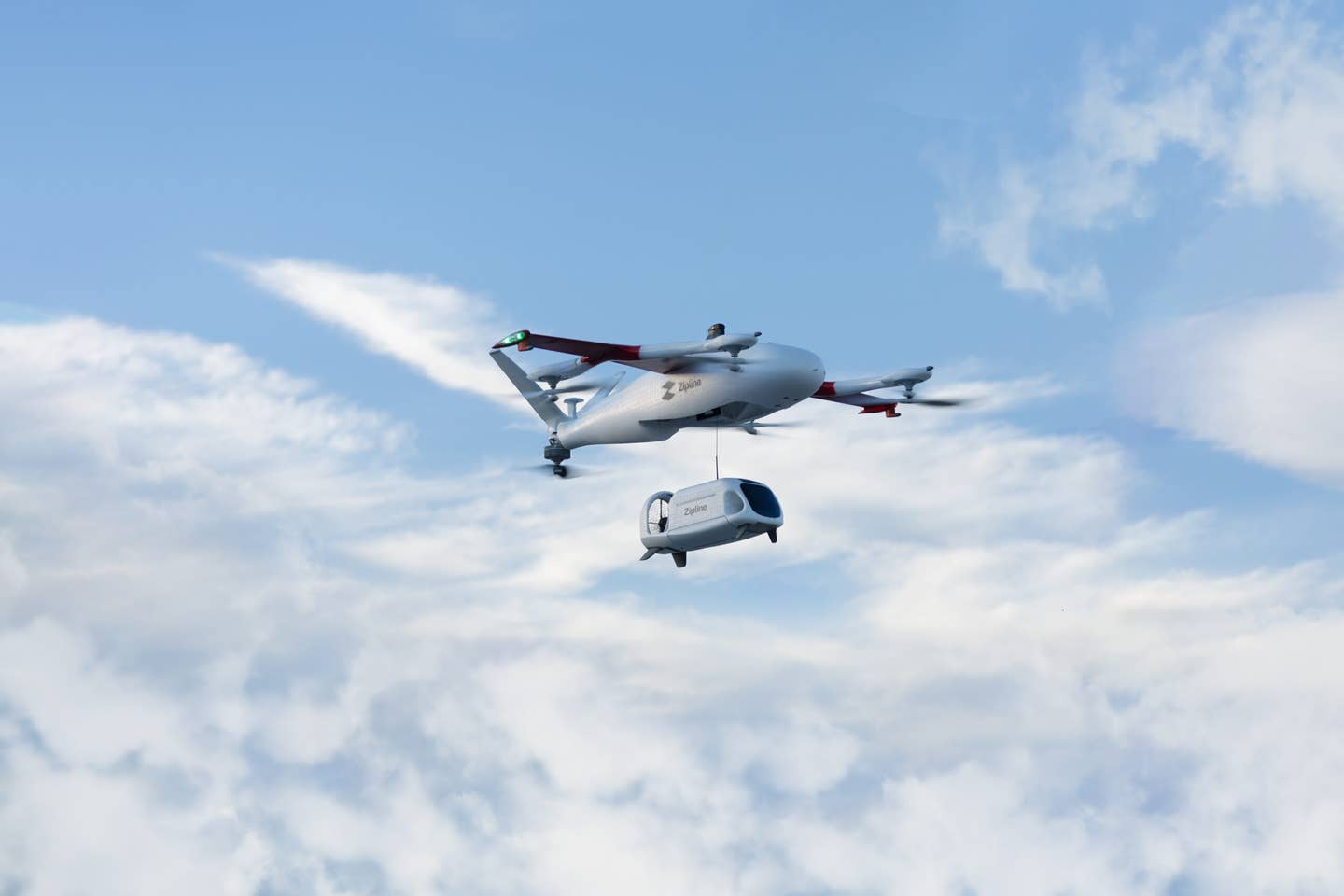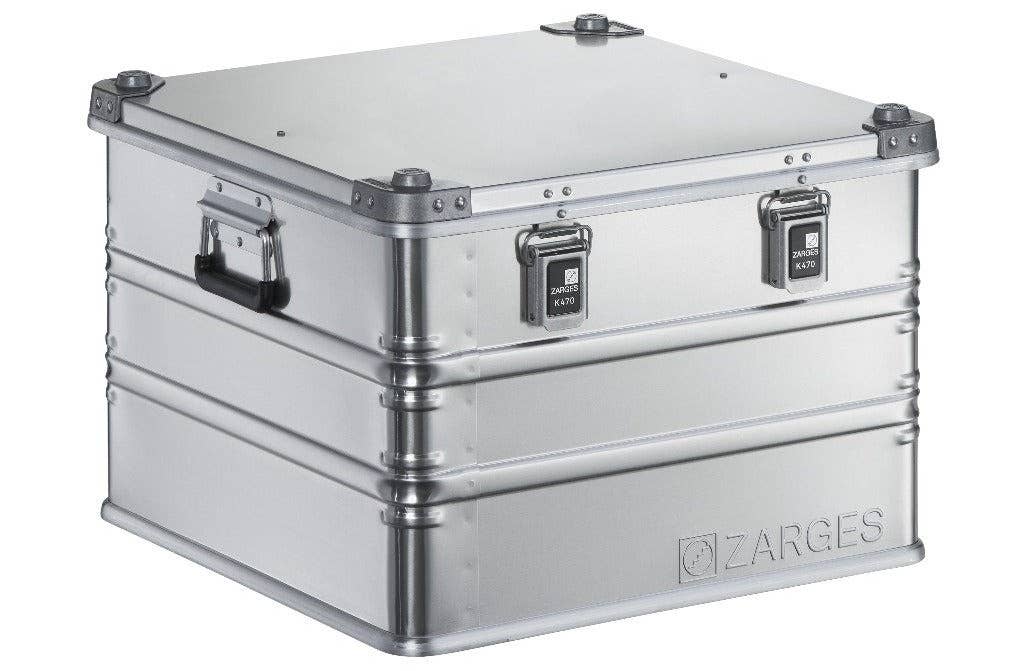How to Launch and Grow a Profitable Drone Business
Here’s a step-by-step guide to exploring the booming drone industry and a path to profitability.

Starting a drone business can be highly rewarding with the right approach. [Pixabay photo]
The drone industry is one of the fastest-growing sectors globally, with applications spanning various industries such as agriculture, real estate, construction, media, and more. Plus, the increasing affordability of drones and technological advancements have made drones affordable and easy to use.
These two factors have combined to create new opportunities for businesses and entrepreneurs. The FAA estimates that the number of commercial drones in the U.S. will exceed 835,000 by 2025, highlighting how big the industry is becoming.
If you aren't a part of the more than 400,000 with remote pilot certifications, it's not too late to become one. Starting a drone business can be highly lucrative if approached with careful planning and strategic execution.
Our guide will walk you through the essential steps to launching and growing a profitable drone business, from initial market research to scaling your operations.
These seven steps will help guide you in building a profitable business as a commercial drone pilot:
- Market research and business planning
- Certifications and licenses
- Equipment selection
- Insurance
- Marketing and sales
- Operations and safety
- Scaling your business
Strategic Market Research and Business Planning
Starting a new business without a plan is never a good idea. As the saying goes, those without a plan should plan to fail.
Even in a growing sector like the drone industry, one of the biggest mistakes you can make is jumping in without preparing yourself for the challenges all new businesses face. For this reason, this step is one of the most involved.
Identifying Your Done Business’ Target Market
The first step in starting a drone business is identifying your target market and niche.
The drone industry is diverse, offering opportunities in areas such as aerial photography, videography, agricultural monitoring, real estate marketing, infrastructure inspection, and more. To succeed, you must decide which niche aligns with your skills, interests, and the demand in your region.
For example, if you have a background in agriculture, consider offering precision farming services, such as using drones for crop monitoring, soil analysis, and pest control. Alternatively, if you're skilled in photography, you could target the real estate market, providing high-quality aerial imagery and videos for property listings.
Understanding the Drone Landscape
Once you've identified your niche, conduct a competitive analysis to understand the landscape. This analysis is very helpful in pointing out your competitors' strengths and weaknesses, allowing you to differentiate your services and capitalize on market opportunities.
Start your analysis by identifying other drone businesses in your area or within your chosen niche and analyze their strengths, weaknesses, pricing strategies, and customer reviews. This research will help you identify gaps in the market and opportunities to differentiate your services.
For example, you might find that while there are many aerial photographers in your area, few offer advanced services like 3D mapping or thermal imaging, presenting an opportunity for you to fill that void.
Business Plan for the Drone Industry
Next, you will want to develop a business plan since it is essential for guiding your decisions and securing financing.
Plans come in all shapes and sizes, but most have some basic components. Your plan should include:
- Executive summary: An overview of your business, including your mission statement and objectives.
- Market analysis: Insights from your market research and competitive analysis.
- Service offerings: A detailed description of the services you plan to offer.
- Marketing strategies: How you will attract and retain clients.
- Financial projections: Revenue forecasts, expense estimates, and profitability analysis.
- Operational plan: How your business will function daily, including logistics, staffing, and management.
A well-thought-out business plan will serve as a road map, helping you stay focused and organized as you grow your business. An excellent and free resource worth exploring is the Small Business Administration website. Here, you will find a wealth of information on creating the perfect business plan.
Legal Structures for Drone Businesses
With a business plan in hand, you will want to decide on the best legal structure for your business.
Choosing the proper business structure is crucial for legal, tax, and liability reasons. Common structures include sole proprietorships, limited liability companies (LLCs), and corporations.
An LLC is often a good choice for small businesses, as it offers liability protection and tax flexibility. However, the best structure for your business depends on your specific circumstances. Before making this decision, it is best to contact an attorney and tax professional.
You must outline your services and pricing structure to complete your business plan. Clearly defining your service offerings and pricing strategy will help you understand your break-even point.
How will you charge clients for your services? Will you charge by the hour, by the project, or offer package deals? These questions need to be answered before you open your doors.
Research your competitors' pricing to ensure your rates are competitive while reflecting the value you provide. Offering tiered pricing packages can attract a wider range of clients.
Financial planning is critical for sustaining and growing your business. Your financial projection should cover startup costs (drones, equipment, certifications, insurance), ongoing expenses (maintenance, software subscriptions, marketing), and revenue forecasts. Consider different scenarios to prepare for potential challenges and opportunities.
Regularly revising your financial projections based on actual performance will help you stay on track and make informed decisions. At a minimum, you should do this once a year.
Marketing Your Drone Business
The final portion of this step involves deciding on the marketing and sales strategies that will determine how effectively you can attract and retain clients.
Identify the channels you will use to promote your services, such as your website, social media, email marketing, and industry events. Develop a sales strategy that includes outreach to potential clients, networking, and leveraging referrals.
Building a strong brand presence and reputation will be key to your long-term success.
Navigating Essential Certifications and Licenses
If you want to make money flying a drone in the U.S., obtaining the Part 107 Remote Pilot Certificate from the FAA is mandatory.
This certification ensures you understand regulations, airspace rules, and safety procedures crucial for drone operations. The process involves passing a knowledge test covering topics like weather effects, loading, performance, and emergency procedures.
If you are unfamiliar with the exam material, you will need to study before taking it. Thankfully, there are many resources available to help you.
Drone pilot hopefuls can attend in-person training (the most expensive option) or purchase an online class from providers like Altitude University and the Pilot Institute. You can also find additional study materials on trusted sites like Sporty's.
Additional certifications, depending on your niche, can also be valuable. For instance, a thermography certification is beneficial for those interested in thermal imaging, while certifications in Geographic Information Systems (GIS) or photogrammetry can enhance services in mapping or surveying. These credentials boost your expertise and make your services more appealing to potential clients.
Selecting the Right Equipment for Your Drone Business
Choosing the best drones and other equipment for your business is crucial. Your selection should align with the services you plan to offer.
For instance, aerial photography and videography demand drones with high-quality cameras and stable flight capabilities, while surveying and mapping require precision GPS and detailed data capture.
Consider payload capacity, flight time, and camera quality to ensure your drones meet your business needs. Investing in reliable, high-performance drones is key to delivering top-notch services.
If you need help deciding what drone to buy, contact the professionals at the online schools mentioned earlier. They will be more than happy to point you in the right direction. You can also contact the larger manufacturers, like Autel Robotics.
In addition to drones, investing in spare parts and accessories is necessary to maintain your equipment in top condition, minimizing downtime. Spare propellers, batteries, landing gear, and accessories like gimbals, ND filters, and lights for flying at night are essential. Having these on hand ensures you can respond promptly to client needs without delays.
Securing Your Drone Business with Insurance
We all hate spending money on insurance, but it is one of those things you will be glad you have if you ever need it.
I've been a commercial drone pilot for close to a decade, and the few times I needed to file an insurance claim more than made up for the monthly payments.
Drone insurance is crucial for protecting your business from potential financial losses due to accidents, equipment damage, or liability claims. While it may not be legally required, having insurance, especially for high-value projects or in risky environments, is highly recommended.
In my experience, most people looking to hire a drone pilot will want at least $1 million in liability coverage.
Drone insurance can cover physical damage to equipment, third-party liability, and, in some cases, data loss. Liability coverage is the most important part of protecting your business in case of injury or property damage caused by your drone.
To minimize risks, implement comprehensive risk management strategies, including regular drone maintenance, thorough preflight checks, and strict adherence to safety protocols. Keeping your team well-trained in emergency procedures and up to date on regulations is essential for mitigating risks.
Effective Online Presence and Marketing Strategies
Building a solid online presence is crucial in today's digital age.
Create a professional website showcasing your services, portfolio, and client testimonials. Optimize your site for search engines to enhance visibility and maintain active social media profiles on platforms such as YouTube, LinkedIn, and Facebook to connect with your audience and showcase your work.
Networking is another powerful tool for growing your business. Attend industry events, trade shows, and conferences to meet potential clients and partners. Joining local business groups and online forums related to your niche can also expand your network, leading to referrals and collaborations that benefit your business.
Content marketing is effective for establishing your expertise and attracting clients. Producing blog posts, videos, and case studies that highlight your knowledge and experience in the drone industry can engage your audience and demonstrate the value of your services.
Many of the large manufacturers, such as DJI, provide these case studies for free. Consistent content marketing helps build your brand and positions you as a thought leader in your niche.
On the sales side, pricing is a critical factor in attracting and retaining clients. Research your competitors' pricing and offer competitive rates that reflect the quality of your services.
Consider offering different packages catering to various client needs and budgets, such as a basic package for aerial photography and a premium package that includes additional services like video editing or 3D mapping. Clear, transparent pricing builds trust with potential clients.
Ensuring Safe and Efficient Drone Operations
If you want your drone business to succeed, you must conduct all operations professionally and safely.
Developing flight plans and safety protocols is essential for ensuring the success of your operations. Each project should have a detailed flight plan outlining mission objectives, flight paths, and safety considerations, including identifying potential hazards and planning for contingencies.
Safety protocols, including preflight checks, communication procedures, and emergency response plans, should be established and followed without exception.
Adhering to FAA regulations is nonnegotiable for any drone business. Staying informed about the latest rules and guidelines, including airspace restrictions, altitude limits, and no-fly zones, is crucial. Online platforms like Aloft will help you do this.
Ensure that all pilots on your team hold valid Part 107 certificates and follow FAA guidelines during every flight. Regularly review and update your operations to maintain compliance. Remember that recurrent training is mandatory every 24 months, so develop a system to track these deadlines.
Regular drone maintenance is vital for keeping your drones in optimal condition and preventing unexpected failures. Follow the manufacturer's maintenance schedules, including battery checks, firmware updates, and motor inspections.
Promptly addressing any repairs will prevent compromising safety or project timelines. Maintaining detailed records will help track the performance and lifespan of your equipment.
As your business grows, hiring additional pilots or support staff may become necessary. Building a robust and well-trained team is essential for scaling your operations and delivering consistent, high-quality services.
Ongoing training ensures your team stays updated with industry developments, enabling them to handle complex projects and exceed client expectations.
Scaling and Expanding Your Drone Business
Once your business is established, consider expanding your services.
Starting with aerial photography, you could eventually offer additional services like drone-based mapping, thermal imaging, or even use your drone to help your local search and rescue team. Exploring new markets and industries can open up new revenue streams.
Partnerships and collaborations can also expand your reach and capabilities. Continuously investing in technology and equipment ensures you stay ahead of the competition and meet the evolving needs of your clients.
Building a Successful Drone Business
Starting a drone business can be highly rewarding with the right approach.
Conduct thorough market research, obtain necessary certifications, build a reliable drone fleet, and implement effective marketing and operational strategies to position yourself for success in this growing industry. Continuous learning, adaptation, and a focus on customer satisfaction are key to long-term success.
If you are going to start a drone business, it is essential to have insurance for your drones. Learn more about the best opportunities for drone insurance.
Take the first step today and start building your profitable drone business.
FAQs
Can a drone business be profitable?
Yes. Many people make a comfortable living with a drone service business. The key is to start a drone business using the steps we have discussed.
How much does it cost to start a drone business?
It depends on how specialized a niche you want to serve. In general, the more specialized the work, the more expensive the drone. You can start a drone business for less than $3,000 or spend hundreds of thousands of dollars depending on what services you plan to offer.
Can I start my own drone business?
Yes. It is very easy to start your own drone business.
How much money can I make with a drone?
It depends on many factors. A good range to consider for a full-time commercial drone pilot is between $40,000 and $100,000 per year.

Sign-up for newsletters & special offers!
Get the latest FLYING stories & special offers delivered directly to your inbox






